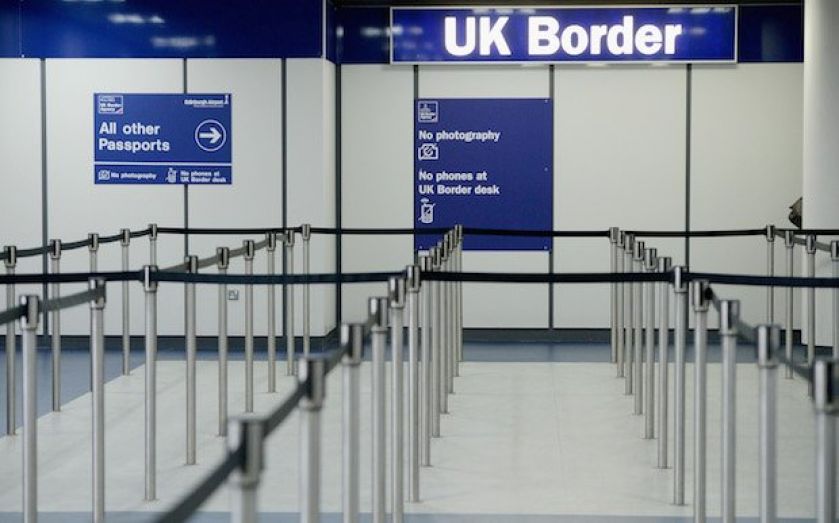Cut unemployment benefits for immigrants, but don’t cut immigration

Prime Minister Cameron should be applauded for his plan to halve the length of benefits for unemployed immigrants down to three months. When a government allows immigrants to collect benefits without employment, it essentially pays someone to live off taxpayer dollars without contributing to the economy.
But in Britain this is not generally the case. Immigrants make a significant contribution to the UK economy in areas ranging from finance to health services. 26 percent of NHS doctors are foreign-born, 28 per cent of food preparation and hospitality workers are foreign-born, and 22 per cent of natural and social science professionals are foreign-born.
Estimates from the Department for Work and Pensions report that less than seven per cent of migrants collected benefits in 2013, compared to 16 per cent of UK nationals. A November 2013 study by former HMRC official Michael O’Connor found that British nationals are more likely to claim several forms of benefits, including incapacity, disability, bereavement, and even Jobseeker’s Allowance. In contrast to the average British national, many migrants contributed more to HMRC than they took out.
The United States finds itself in a similar situation. After 1996 welfare reforms eliminated benefits eligibility even for legal immigrants, both low-income immigrants and Americans became more reliant on work and the number of Americans on food stamps fell by 33 per cent in just four years. On both sides of the Atlantic, native-born citizens collect more in benefits than immigrants.
Immigrants who come to Britain to work are helping economic growth. Immigrants typically have different skills than the native-born population and compete for different jobs. As in the United States, most British nationals are medium-skilled workers, while immigrants are generally either low- or high-skilled workers. Farmers and manufacturers have complained that the British lack the skills and desire to fill certain jobs. When immigrants cross the border to work these jobs, they increase the output of farms and factories, raising GDP growth.
No labour market is perfect, and immigrants help fill gaps that natives are unable to fill. November 2013 research by Cinzia Rienzo at the National Institute of Economic and Social Research found that more immigrants in the labour force increase economic productivity. Because of immigrants, the entire economy can work fewer hours yet produce more.
With clear benefits to immigration, Britain would be remiss if it allowed its economic competitors to win the battle for productive immigrants. On Sunday, the Washington Post named Germany “the new land of opportunity for immigrants,” with free language classes and vocational training. Germany faces a shortage of labour and is going abroad to find it, even if it means perhaps over-subsidizing immigration.
Some German immigration reforms could serve as a model for the UK. In 2012, Germany introduced a new work permit called the “Blue Card,” which granted entry to anyone with a university degree and a job offer above a minimum salary (depending on the field). Germany also simplified the entry process for immigrants coming from outside the EU.
Now that immigrants are eligible for fewer benefits, Cameron should ensure that as many hard-working immigrants as possible are allowed to enter the country. Angela Merkel’s immigration reforms are a successful model that other countries, not just Britain, should use as an example.